OSS BLOG
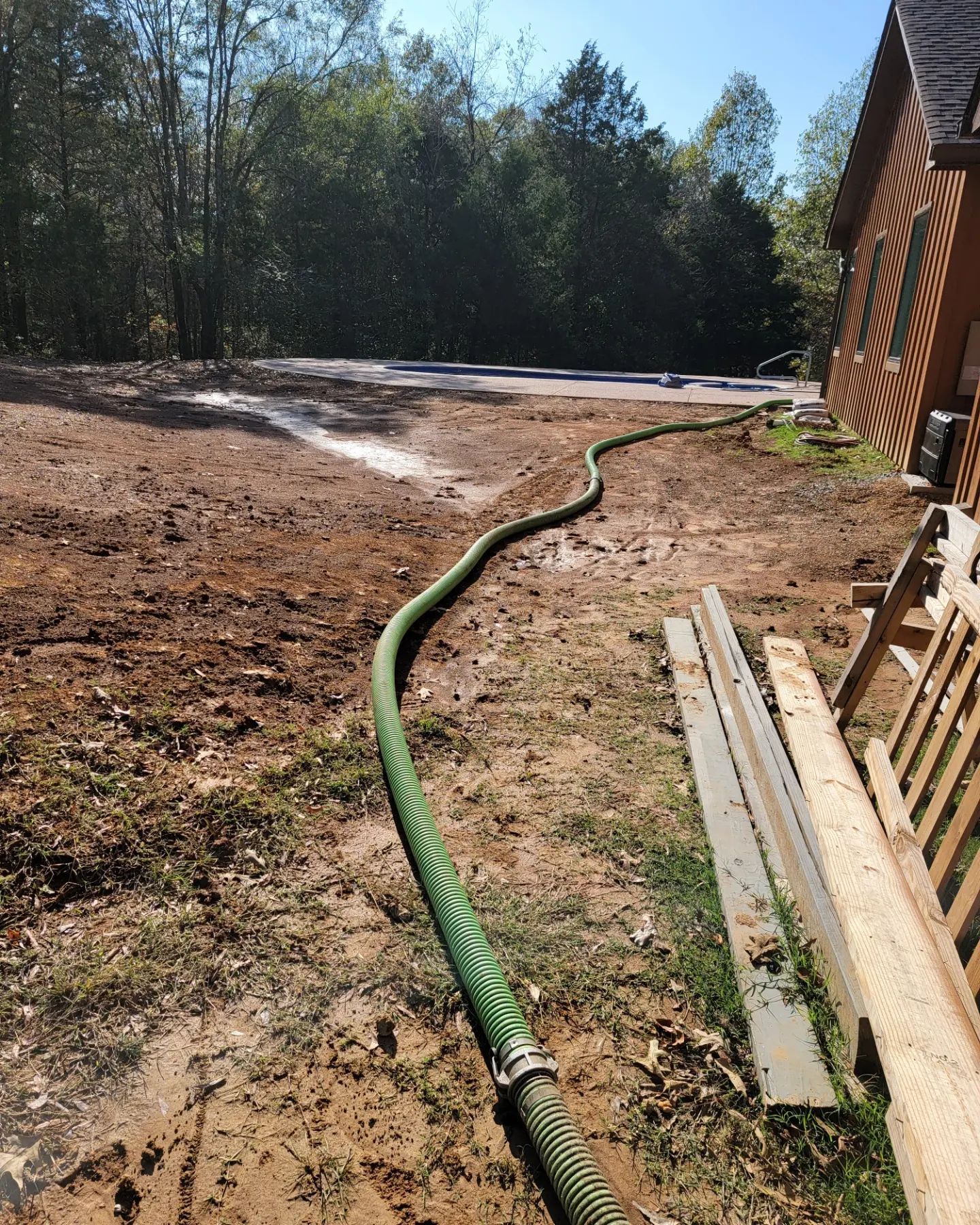
Your septic system is a valuable investment that plays a critical role in managing wastewater and protecting public health and the environment. To ensure its longevity and efficiency, proactive maintenance and proper care are essential. In this comprehensive guide, Oxford Septic Services shares expert tips and insights to help homeowners safeguard their septic system investment for years to come. Chapter 1: Understanding Your Septic System Overview of the components and functions of a septic system, including the septic tank, drain field, and distribution box Explanation of how the system processes and treats wastewater from your home, highlighting the importance of each component Chapter 2: Regular Maintenance Practices Guidance on establishing a regular maintenance schedule for your septic system, including routine inspections, pumping, and cleaning Tips for monitoring water usage, managing household waste, and avoiding practices that can strain or damage the system Chapter 3: Proper Waste Disposal Strategies for responsible waste disposal to minimize the risk of clogs, backups, and system malfunctions Recommendations for avoiding the flushing of non-biodegradable items, chemicals, and excessive grease or solids into the septic system Chapter 4: Water Conservation Techniques Techniques for conserving water to reduce the workload on your septic system and extend its lifespan Suggestions for installing low-flow fixtures, repairing leaks, and implementing water-saving habits in daily activities Chapter 5: Landscape and Drainage Considerations Tips for maintaining a healthy landscape around your septic system to prevent root intrusion, soil compaction, and drainage issues Advice on directing surface water away from the drain field and protecting the system from potential damage caused by landscaping activities Chapter 6: Professional Services and Inspections Importance of hiring qualified professionals for septic system services, such as inspections, repairs, and installations Guidance on scheduling regular inspections to identify potential problems early and address them before they escalate into costly repairs Conclusion: By following the expert tips and insights provided by Oxford Septic Services, homeowners can protect their septic system investment and ensure its long-term functionality and efficiency. With proactive maintenance, responsible waste management, and professional assistance when needed, you can enjoy peace of mind knowing that your septic system will continue to serve your home reliably for years to come.
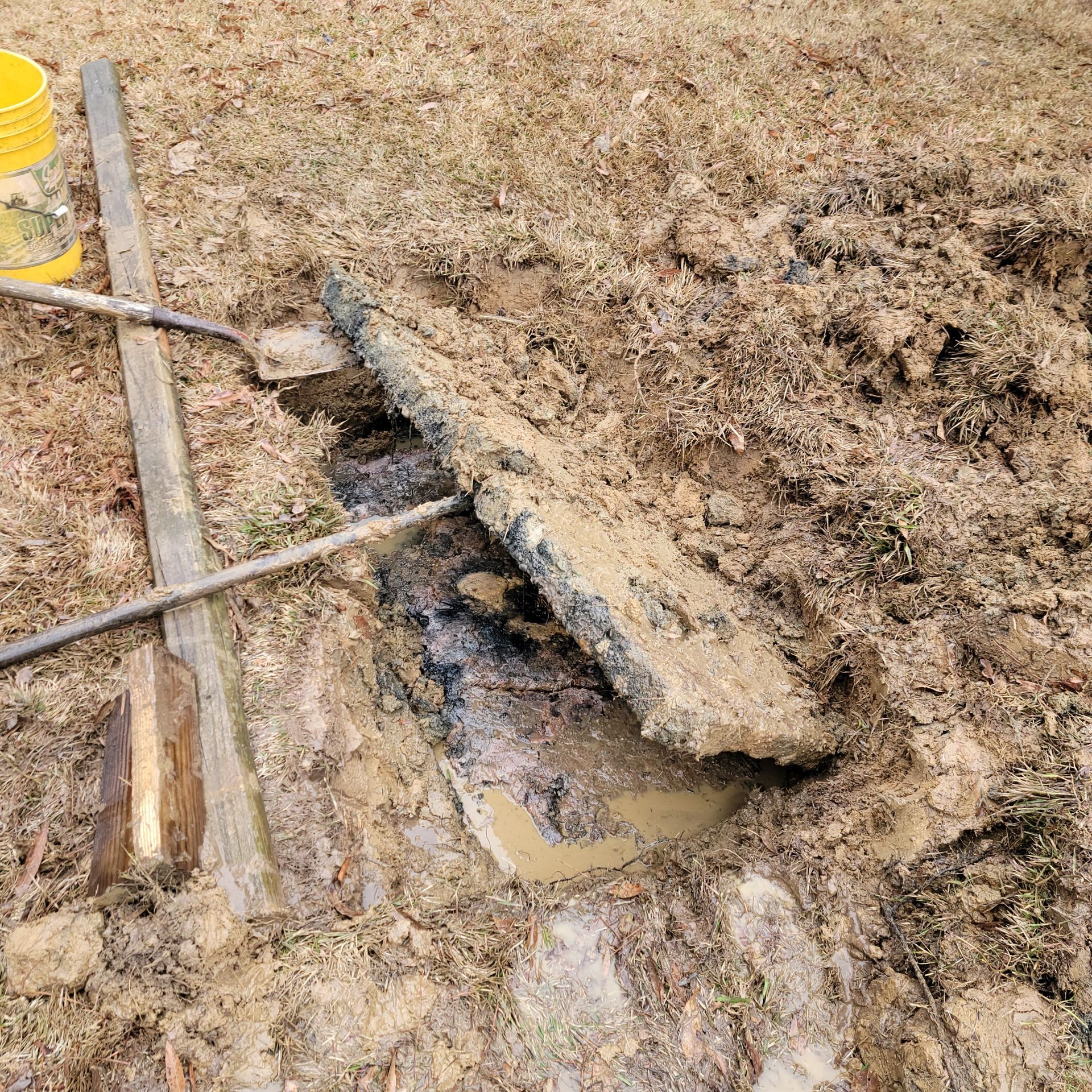
Bacteria play a crucial role in the functionality and efficiency of your septic system. These microscopic organisms are responsible for breaking down organic matter, purifying wastewater, and maintaining a healthy balance within the system. In this comprehensive guide, Oxford Septic Services explores the vital role of bacteria in septic systems, providing valuable insights and expert advice to homeowners. Chapter 1: Understanding Septic System Bacteria Overview of the different types of bacteria found in septic systems, including aerobic and anaerobic bacteria Explanation of how these bacteria work together to decompose organic solids, reduce pathogens, and neutralize harmful chemicals in wastewater Chapter 2: Biological Processes in the Septic Tank Examination of the biological processes that occur in the septic tank, including digestion, fermentation, and mineralization Description of how bacteria break down organic matter into simpler compounds like carbon dioxide, water, and methane through enzymatic reactions Chapter 3: Maintaining a Healthy Bacterial Population Guidance on how to promote the growth and activity of beneficial bacteria in your septic system Tips for avoiding practices that can harm or disrupt the bacterial balance, such as flushing chemical cleaners, antibacterial soaps, and excessive grease or solids Chapter 4: Bacteria-Based Septic System Treatments Overview of bacteria-based additives and treatments designed to enhance septic system performance and resilience Discussion of the benefits and limitations of bacterial products, including their effectiveness in promoting bacterial growth and reducing odors and backups Chapter 5: Environmental Considerations and Ecological Impact Exploration of the environmental implications of bacterial activity in septic systems, including nutrient cycling, groundwater contamination, and ecosystem health Consideration of sustainable practices and technologies that support a healthy bacterial ecosystem while minimizing environmental harm Chapter 6: Troubleshooting Bacterial Imbalances Identification of common signs of bacterial imbalances in septic systems, such as foul odors, slow drainage, and excessive solids accumulation Strategies for addressing bacterial issues through proactive maintenance, professional inspections, and targeted treatments Conclusion: Bacteria are the unsung heroes of your septic system, working tirelessly behind the scenes to ensure efficient wastewater treatment and environmental protection. With insights from Oxford Septic Services, homeowners can better understand and appreciate the vital role of bacteria in their septic systems, fostering a healthy and sustainable wastewater management solution for years to come.

Septic systems are intricate wastewater treatment systems designed to efficiently and safely manage household sewage in areas without access to municipal sewer lines. Understanding the science behind these systems is crucial for homeowners to ensure proper maintenance, prevent issues, and optimize performance. In this informative guide, Oxford Septic Services delves into the science of septic systems, providing valuable insights and expert advice to homeowners. Chapter 1: The Anatomy of a Septic System Overview of the components of a septic system, including the septic tank, distribution box, drain field, and soil absorption area Explanation of how each component works together to treat and dispose of wastewater from household plumbing fixtures Chapter 2: Microbial Action in the Septic Tank Discussion of the essential role of bacteria and other microorganisms in the septic tank's treatment process Explanation of how bacteria break down organic matter and pathogens, converting sewage into harmless byproducts like water, carbon dioxide, and methane Chapter 3: Soil Absorption and Filtration Exploration of the role of soil in the final stage of wastewater treatment and disposal in the drain field Description of how soil acts as a natural filter, removing contaminants and pathogens before treated wastewater re-enters the groundwater Chapter 4: Hydraulic Principles and System Design Overview of the hydraulic principles that govern the flow of wastewater through a septic system Explanation of how proper system design, including sizing, layout, and component placement, maximizes efficiency and prevents issues like backups and overflows Chapter 5: Factors Affecting System Performance Examination of the various factors that can influence the performance of a septic system, including soil type, groundwater levels, hydraulic loading, and household water usage Guidance on how homeowners can mitigate potential issues and optimize system performance through proper maintenance and management practices Chapter 6: Environmental Considerations and Sustainability Discussion of the environmental impacts of septic systems, including nutrient pollution, groundwater contamination, and habitat disruption Exploration of sustainable septic system practices and technologies that minimize environmental harm and promote long-term ecological health Conclusion: By gaining a deeper understanding of the science behind septic systems, homeowners can make informed decisions about their maintenance, management, and environmental impact. With expert insights from Oxford Septic Services, homeowners can ensure their septic systems operate efficiently, protect public health and the environment, and provide reliable wastewater treatment for years to come.

Residential septic systems play a crucial role in managing wastewater disposal for millions of homes across the country. Proper maintenance of these systems is essential to ensure reliable performance, prevent costly repairs, and protect the environment. In this comprehensive guide, Oxford Septic Services shares practical tips and expert advice to help homeowners effectively maintain their residential septic systems, promoting longevity, efficiency, and peace of mind. Chapter 1: Understanding Your Residential Septic System Overview of the components and function of a typical residential septic system, including the tank, distribution system, drain field, and related components Explanation of the importance of understanding how your septic system works to facilitate proper maintenance and troubleshooting Chapter 2: Regular Maintenance Practices for Residential Septic Systems Discussion of the importance of routine maintenance in preventing system failures, backups, and environmental contamination Overview of recommended maintenance tasks, including regular inspections, pumping schedules, and monitoring of water usage and system performance Chapter 3: Efficient Water Management Strategies Introduction to water conservation techniques and habits that can help reduce strain on residential septic systems Tips for homeowners to minimize water usage, such as fixing leaks, installing water-saving fixtures, and spreading out laundry and dishwasher loads Chapter 4: Responsible Waste Disposal Practices Guidance on proper waste disposal habits to prevent the introduction of harmful substances into the septic system Explanation of the impact of common household items like grease, chemicals, and non-biodegradable materials on septic system health, along with tips for safe disposal Chapter 5: Professional Services and Expert Assistance Overview of the services offered by professional septic service providers like Oxford Septic Services, including inspections, pumping, repairs, and emergency response Explanation of the benefits of partnering with a reputable septic service provider for routine maintenance and system care Chapter 6: Compliance with Regulatory Requirements Discussion of the regulatory obligations that homeowners with septic systems must adhere to, including permitting, reporting, and compliance with local health and environmental regulations Guidance on ensuring compliance through proper system maintenance, documentation, and cooperation with regulatory authorities Conclusion: By following the tips and guidelines outlined in this guide, homeowners can take proactive steps to maintain their residential septic systems and ensure long-lasting performance. With a combination of regular maintenance, efficient water management practices, responsible waste disposal habits, and professional assistance from Oxford Septic Services, homeowners can enjoy peace of mind knowing that their septic systems are well cared for and operating at their best.
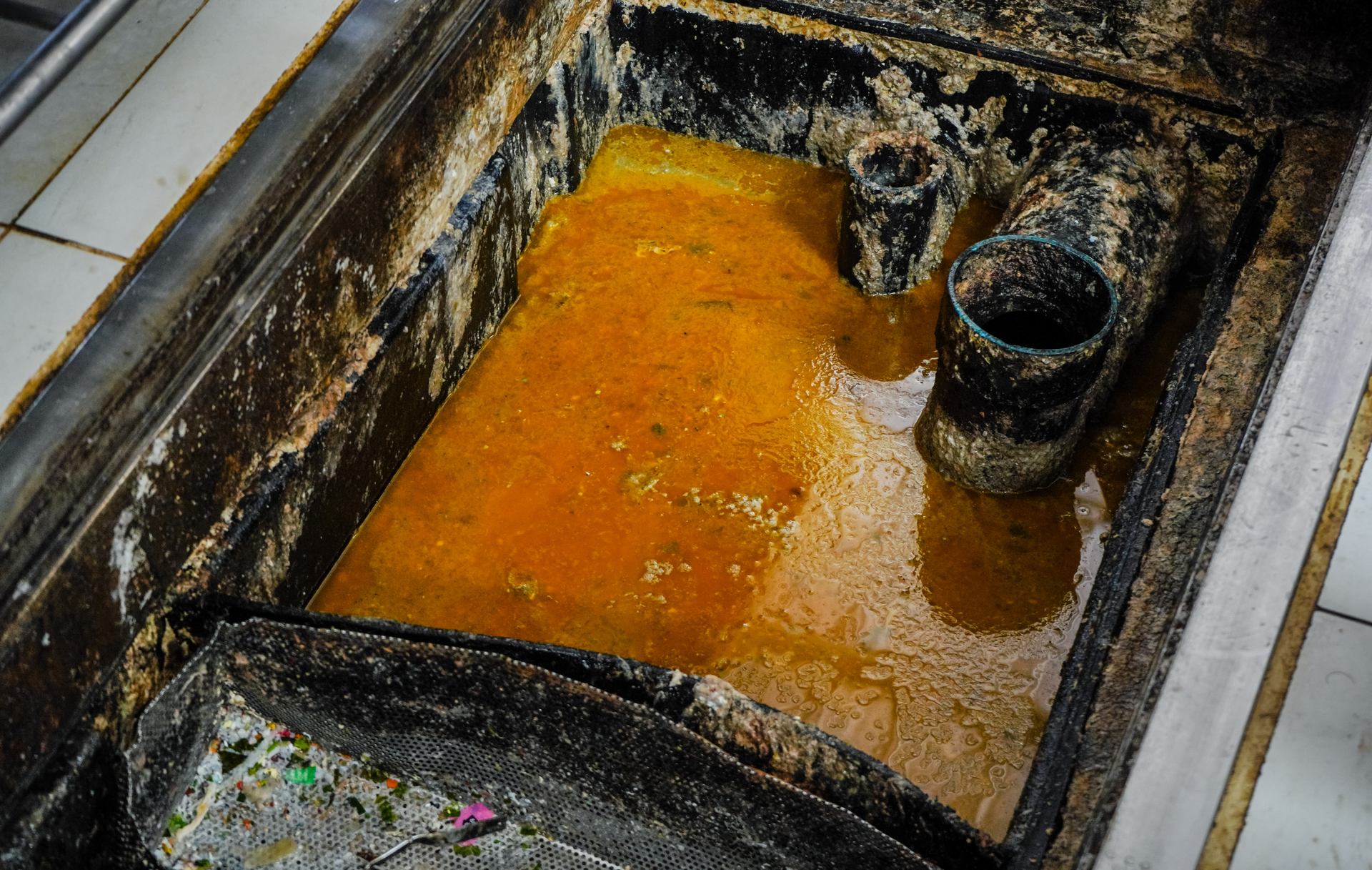
Commercial properties often rely on septic systems to manage wastewater disposal efficiently. However, maintaining the optimal functionality of a commercial septic system requires careful attention and proactive maintenance. In this guide, Oxford Septic Services shares valuable tips and insights to help commercial property owners maximize the efficiency and longevity of their septic systems, ensuring uninterrupted operation and compliance with regulatory requirements. Chapter 1: Understanding Your Commercial Septic System Overview of the components and operation of a typical commercial septic system, including the tank, distribution system, drain field, and associated components Explanation of the unique considerations and challenges involved in managing a commercial septic system, such as higher wastewater volumes, varying usage patterns, and regulatory requirements Chapter 2: Regular Maintenance Practices for Commercial Septic Systems Discussion of the importance of regular maintenance in preventing system failures, backups, and environmental contamination Overview of recommended maintenance practices for commercial septic systems, including routine inspections, pumping schedules, and monitoring of effluent quality Chapter 3: Efficient Water Management Strategies Introduction to water-saving technologies and practices that can help reduce water usage and alleviate strain on commercial septic systems Tips for optimizing water use efficiency in commercial settings, such as installing low-flow fixtures, repairing leaks promptly, and implementing water reuse systems Chapter 4: Proper Waste Disposal Protocols Guidance on proper waste disposal practices to minimize the introduction of harmful substances into the septic system Discussion of the importance of educating employees and tenants about responsible waste disposal habits and the potential impact of improper disposal on system performance Chapter 5: Professional Services and Expert Assistance Overview of the benefits of partnering with a reputable septic service provider like Oxford Septic Services for commercial septic system maintenance Explanation of the services offered by professional septic service providers, including inspections, pumping, repairs, and emergency response Chapter 6: Compliance with Regulatory Requirements Discussion of the regulatory requirements governing commercial septic systems, including permitting, reporting, and compliance with local health and environmental regulations Guidance on ensuring compliance with regulatory requirements through proper system maintenance, documentation, and cooperation with regulatory authorities Conclusion: By implementing the tips and strategies outlined in this guide, commercial property owners can effectively manage and maintain their septic systems, ensuring efficient operation, regulatory compliance, and long-term sustainability. With proactive maintenance, efficient water management practices, responsible waste disposal protocols, and professional assistance from Oxford Septic Services, commercial septic system owners can maximize efficiency and minimize the risk of costly disruptions and environmental harm.
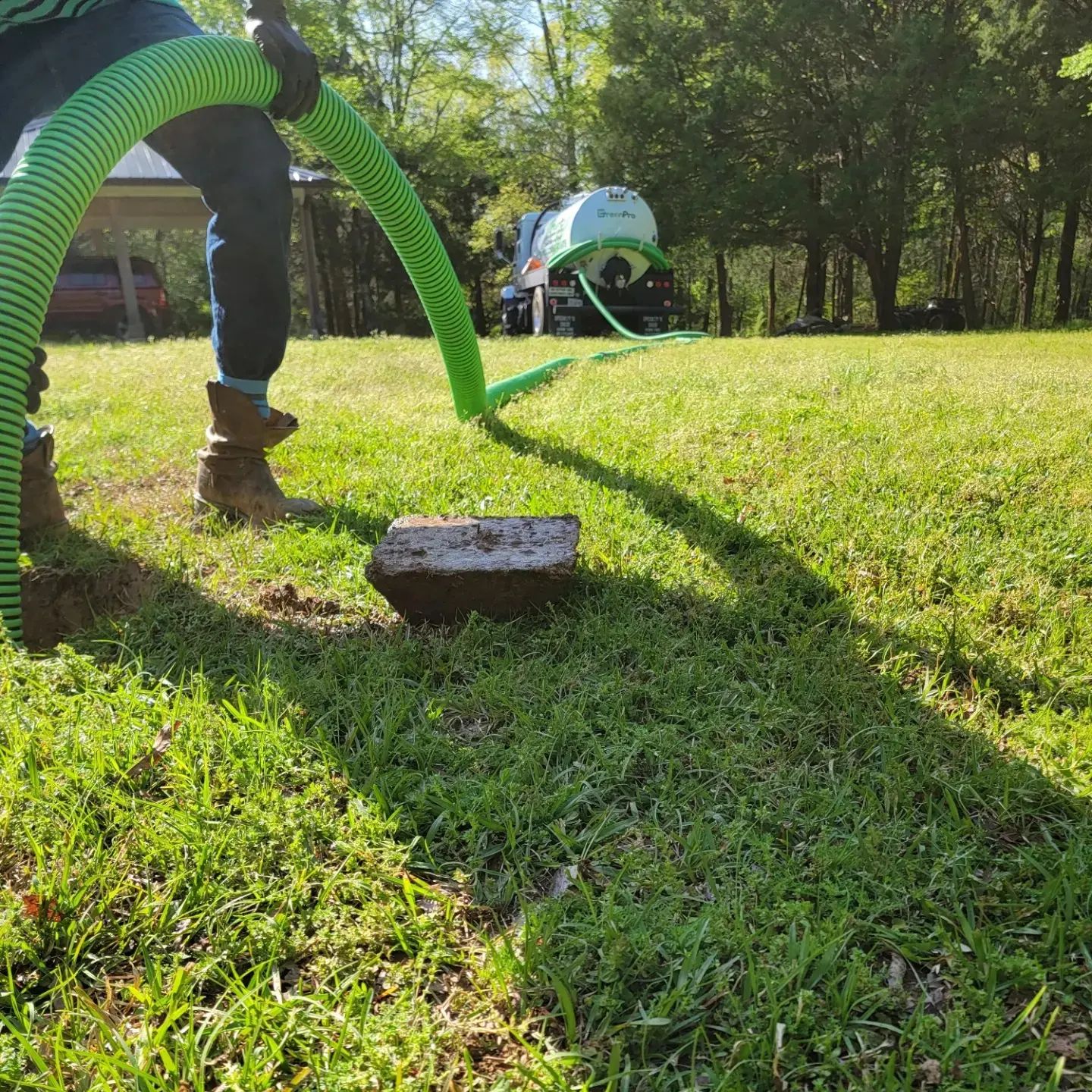
Maintaining a healthy septic system is essential for the proper function of your home's wastewater disposal system. However, misinformation and myths about septic system maintenance abound, leading many homeowners to make costly mistakes or neglect essential care practices. In this comprehensive guide, Oxford Septic Services sets the record straight by debunking common myths surrounding septic system maintenance and providing valuable insights to help homeowners make informed decisions about caring for their septic systems. Chapter 1: Myth vs. Reality: Understanding the Truth About Septic Systems Introduction to the prevalence of myths and misconceptions surrounding septic system maintenance, including beliefs about additives, pumping frequency, and household habits Discussion of the importance of distinguishing fact from fiction when it comes to maintaining a healthy and functional septic system Chapter 2: Myth #1: Septic Additives Are Necessary for System Health Explanation of why septic additives are often unnecessary and may even be harmful to septic system function, debunking the myth that they are essential for maintaining system health Overview of Oxford Septic Services' stance on septic additives and their recommendation for natural, bacteria-friendly maintenance practices Chapter 3: Myth #2: Septic Tanks Never Need Pumping Debunking the misconception that septic tanks never need pumping by providing insights into the factors that influence pumping frequency, such as household size, water usage, and tank size Discussion of the importance of regular septic tank pumping to prevent backups, odors, and system failures Chapter 4: Myth #3: Household Cleaners Won't Harm Your Septic System Exploration of the truth behind the myth that household cleaners are safe for septic systems, including the impact of harsh chemicals on beneficial bacteria and system components Introduction to septic-safe cleaning alternatives and best practices for minimizing the use of harmful chemicals in the household Chapter 5: Myth #4: Septic Systems Can Last Indefinitely Without Maintenance Explanation of why neglecting septic system maintenance can lead to premature system failure, dispelling the myth that septic systems can last indefinitely without proper care Overview of the consequences of neglecting septic system maintenance, including costly repairs, environmental contamination, and health hazards Chapter 6: Myth #5: DIY Repairs Are Always Cheaper and More Effective Discussion of the risks and limitations of DIY septic system repairs, debunking the myth that DIY solutions are always cheaper and more effective than professional services Introduction to the expertise, specialized equipment, and regulatory compliance offered by professional septic service providers like Oxford Septic Services Conclusion: By debunking common myths about septic system maintenance and providing accurate insights based on expertise and experience, Oxford Septic Services aims to empower homeowners to make informed decisions about caring for their septic systems. By adopting best practices, avoiding harmful habits, and partnering with a reputable septic service provider, homeowners can ensure the long-term health and functionality of their septic systems.

Septic system emergencies can strike at any time, causing stress and disruption to your daily life. Whether you're dealing with a sewage backup, a clogged drain field, or a malfunctioning pump, it's essential to have a reliable and experienced septic service provider you can trust to respond swiftly and effectively. In this guide, Oxford Septic Services sheds light on the importance of emergency septic services and how their team is equipped to handle urgent situations with professionalism and expertise. Chapter 1: Understanding Septic System Emergencies Overview of common septic system emergencies, including sewage backups, foul odors, slow drains, and standing water in the yard Discussion of the potential causes of septic emergencies, such as clogged pipes, tree root intrusion, tank overflows, and pump failures Explanation of the serious health and environmental risks associated with untreated septic system issues Chapter 2: The Importance of Prompt Action Explanation of why immediate action is crucial when faced with a septic system emergency, including preventing property damage, avoiding health hazards, and minimizing repair costs Overview of the consequences of delaying or ignoring septic system problems, such as sewage contamination, groundwater pollution, and structural damage to your home Chapter 3: Oxford Septic Services' Emergency Response Process Description of Oxford Septic Services' streamlined and efficient emergency response protocol, which includes 24/7 availability, rapid dispatch of experienced technicians, and state-of-the-art equipment Discussion of how the company's skilled professionals assess the situation, diagnose the problem, and implement effective solutions to restore your septic system to full functionality Chapter 4: Common Emergency Services Provided Overview of the comprehensive range of emergency septic services offered by Oxford Septic Services, including sewage cleanup, drain field repair, pump replacement, and tank pumping Explanation of how the company's technicians prioritize safety, efficiency, and customer satisfaction while addressing urgent septic system issues Chapter 5: Partnering with Oxford Septic Services for Peace of Mind Introduction to Oxford Septic Services' reputation as a trusted and reliable septic service provider in the community, with a track record of excellence in emergency response and customer care Overview of the company's commitment to transparency, integrity, and professionalism in all aspects of their operations Conclusion: Septic system emergencies demand prompt and decisive action to mitigate damage, protect health, and restore functionality to your home's wastewater management system. By partnering with a reputable and experienced provider like Oxford Septic Services, you can have peace of mind knowing that expert help is just a phone call away when you need it most. Don't wait until disaster strikes—be proactive and ensure that your home is prepared for any septic system emergency that may arise.

Your septic tank plays a vital role in managing household wastewater, separating solids from liquids and facilitating the breakdown of organic matter. Over time, however, solid waste accumulates in the tank, leading to potential issues such as clogs, backups, and system failures. Regular septic tank cleaning is essential to maintain optimal system performance and prevent costly repairs. In this guide, Oxford Septic Services shares valuable insights into the importance of regular septic tank cleaning and the benefits it provides for homeowners. Chapter 1: Understanding the Role of the Septic Tank Explanation of the function and anatomy of a septic tank, including the inlet and outlet pipes, baffles, and compartments Overview of how the septic tank traps solids and allows wastewater to undergo primary treatment before being released into the drain field Discussion of the consequences of neglecting septic tank maintenance, such as sewage backups, foul odors, and environmental contamination Chapter 2: Signs Your Septic Tank Needs Cleaning Identification of common indicators that your septic tank requires cleaning, including slow drains, gurgling noises, sewage odors, and lush vegetation over the drain field Explanation of how regular inspections and pumping schedules can help detect and address septic tank issues before they escalate Chapter 3: Benefits of Regular Septic Tank Cleaning Discussion of the advantages of proactive septic tank maintenance, such as preventing system failures, extending the lifespan of the drain field, and minimizing the risk of groundwater contamination Overview of how routine septic tank cleaning can improve system efficiency, reduce the need for costly repairs, and enhance property value Chapter 4: Proper Cleaning Techniques and Frequency Guidance on the best practices for septic tank cleaning, including the use of professional-grade equipment, environmentally safe cleaning agents, and proper disposal methods for septic waste Explanation of how factors such as household size, water usage, and tank capacity influence the frequency of septic tank cleaning Chapter 5: Partnering with Oxford Septic Services Introduction to Oxford Septic Services and their expertise in providing reliable and efficient septic tank cleaning services to homeowners in the area Overview of the company's commitment to customer satisfaction, professionalism, and environmental responsibility Conclusion: Regular septic tank cleaning is a crucial aspect of septic system maintenance that should not be overlooked by homeowners. By understanding the importance of septic tank cleaning and partnering with a reputable service provider like Oxford Septic Services, you can ensure the longevity and efficiency of your septic system, protect your property investment, and safeguard the health of your family and the environment.
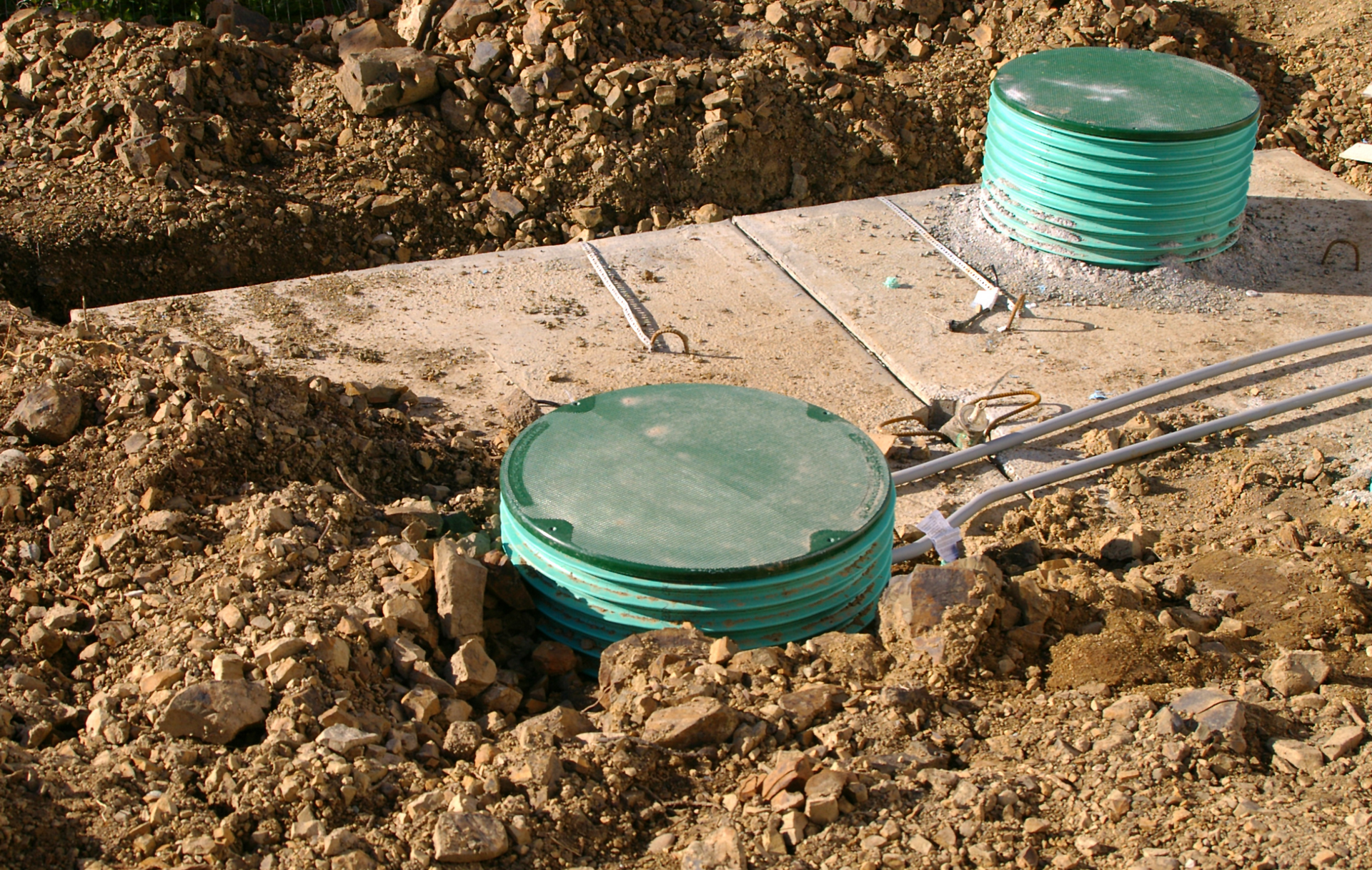
Your septic system is a crucial component of your home's infrastructure, responsible for managing wastewater in a safe and efficient manner. To ensure its longevity and optimal performance, proper maintenance and care are essential. In this comprehensive guide, brought to you by Oxford Septic Services, we'll share expert tips and strategies for extending the lifespan of your septic system, safeguarding your investment, and promoting environmental sustainability. Chapter 1: Understand Your Septic System Explanation of the components of a typical septic system, including the septic tank, drain field, and soil absorption system Overview of how a septic system functions to treat and dispose of wastewater from your home Importance of understanding the location and layout of your septic system for maintenance and troubleshooting purposes Chapter 2: Practice Water Conservation Tips for reducing water usage in your household to alleviate strain on your septic system, such as fixing leaks, installing low-flow fixtures, and using water-efficient appliances Discussion of the impact of excessive water usage on septic system performance and longevity, including the risk of hydraulic overloading and soil saturation Chapter 3: Proper Waste Disposal Guidance on what should and should not be flushed or disposed of down the drain to prevent clogs, backups, and damage to your septic system Explanation of the importance of avoiding flushing non-biodegradable items, chemicals, grease, and harsh cleaners that can disrupt the natural balance of bacteria in your septic tank Chapter 4: Regular Maintenance and Inspections Importance of scheduling routine maintenance and inspections with a reputable septic service provider like Oxford Septic Services to identify and address issues before they escalate Overview of the key tasks involved in septic system maintenance, such as septic tank pumping, drain field inspections, and bacteria treatments Chapter 5: Protect Your Drain Field Tips for preserving the health and functionality of your drain field, including avoiding parking vehicles or heavy equipment over it, landscaping with care, and diverting surface water away from the area Discussion of common issues that can compromise drain field performance, such as soil compaction, root intrusion, and excessive water runoff Chapter 6: Environmental Considerations Importance of responsible septic system management for protecting groundwater quality, preventing pollution, and preserving natural ecosystems Discussion of the role of Oxford Septic Services in promoting environmentally friendly practices and complying with regulatory requirements Conclusion: By following these expert tips for extending the lifespan of your septic system and partnering with a trusted septic service provider like Oxford Septic Services, you can ensure that your system remains healthy, functional, and environmentally sustainable for years to come. Taking proactive steps to care for your septic system not only protects your investment but also safeguards the health and well-being of your family and the surrounding environment.
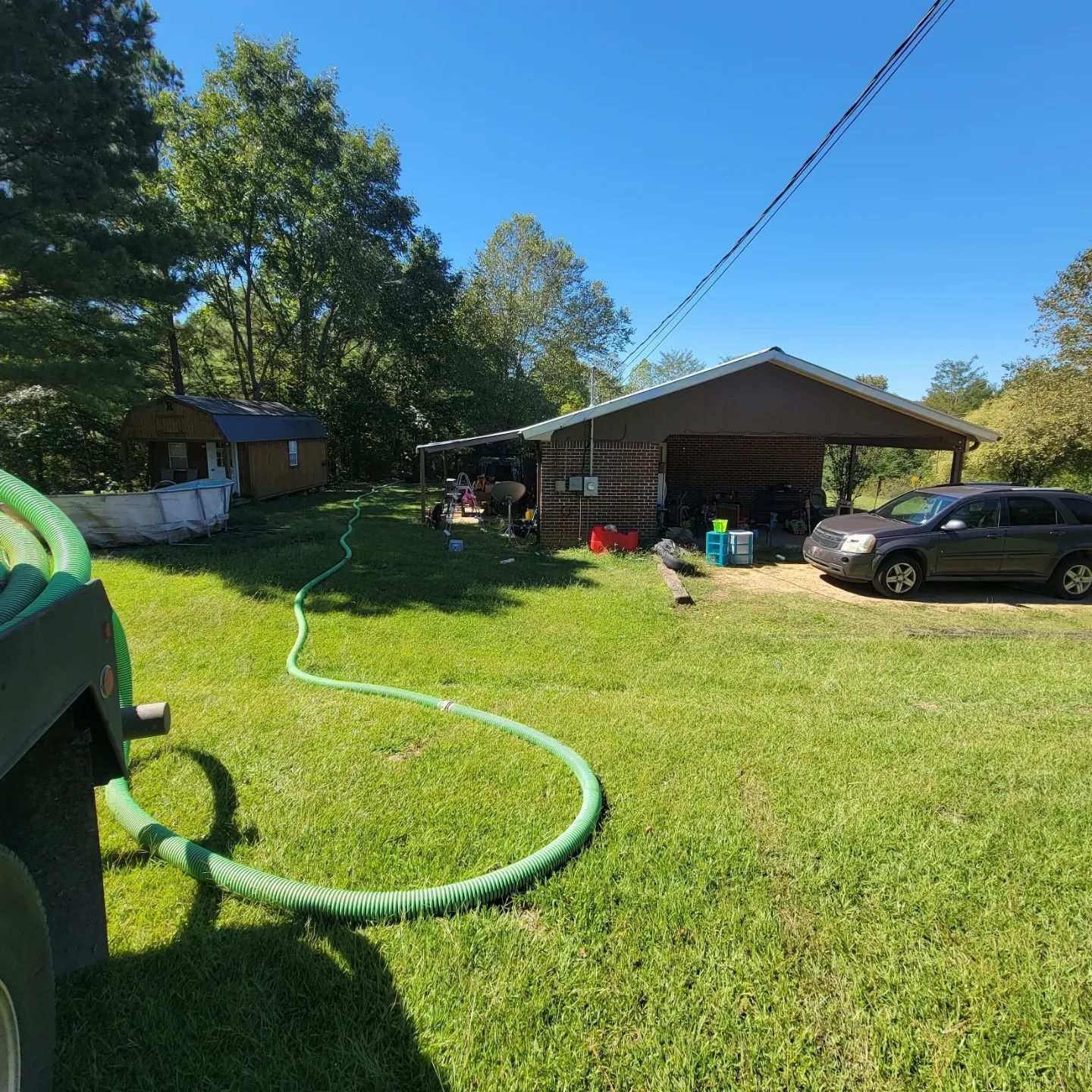
Owning a septic system comes with responsibilities, including regular maintenance and occasional repairs. However, with the expertise and assistance of Oxford Septic Services, homeowners can ensure the health and longevity of their septic systems. In this comprehensive guide, we'll explore the vital role that Oxford Septic Services plays in keeping your septic system healthy and functional. Chapter 1: Understanding the Importance of Septic System Health Explanation of why maintaining a healthy septic system is essential for homeowners, including preventing backups, protecting property value, and safeguarding the environment. Overview of the components of a septic system and how they work together to treat and dispose of wastewater from your home. Discussion of the consequences of neglecting septic system maintenance, such as sewage backups, foul odors, and environmental contamination. Chapter 2: Services Offered by Oxford Septic Services Description of the range of services provided by Oxford Septic Services, including septic tank pumping, inspection, repair, and installation. Explanation of how Oxford Septic Services uses advanced equipment and techniques to diagnose and address septic system issues effectively. Testimonials from satisfied customers highlighting the quality and reliability of the services provided by Oxford Septic Services. Chapter 3: The Importance of Regular Maintenance Discussion of why regular maintenance is crucial for preserving the health and functionality of a septic system. Explanation of the various tasks involved in routine septic system maintenance, such as inspecting the tank, checking for leaks, and pumping out accumulated solids. Tips for homeowners on how to schedule and budget for regular septic system maintenance to avoid costly repairs and emergencies. Chapter 4: Emergency Septic Services Overview of the emergency septic services offered by Oxford Septic Services, including 24/7 availability for septic system emergencies. Description of common septic system emergencies, such as sewage backups, clogged drain lines, and tank overflows, and how Oxford Septic Services responds to them. Testimonials from homeowners who have relied on Oxford Septic Services during septic system emergencies and experienced prompt and professional assistance. Conclusion: Oxford Septic Services plays a vital role in keeping homeowners' septic systems healthy and functional. By providing a range of services, including routine maintenance and emergency repairs, Oxford Septic Services ensures that homeowners can enjoy peace of mind knowing that their septic systems are in good hands. Whether you need routine maintenance or immediate assistance during a septic system emergency, Oxford Septic Services is there to help.
